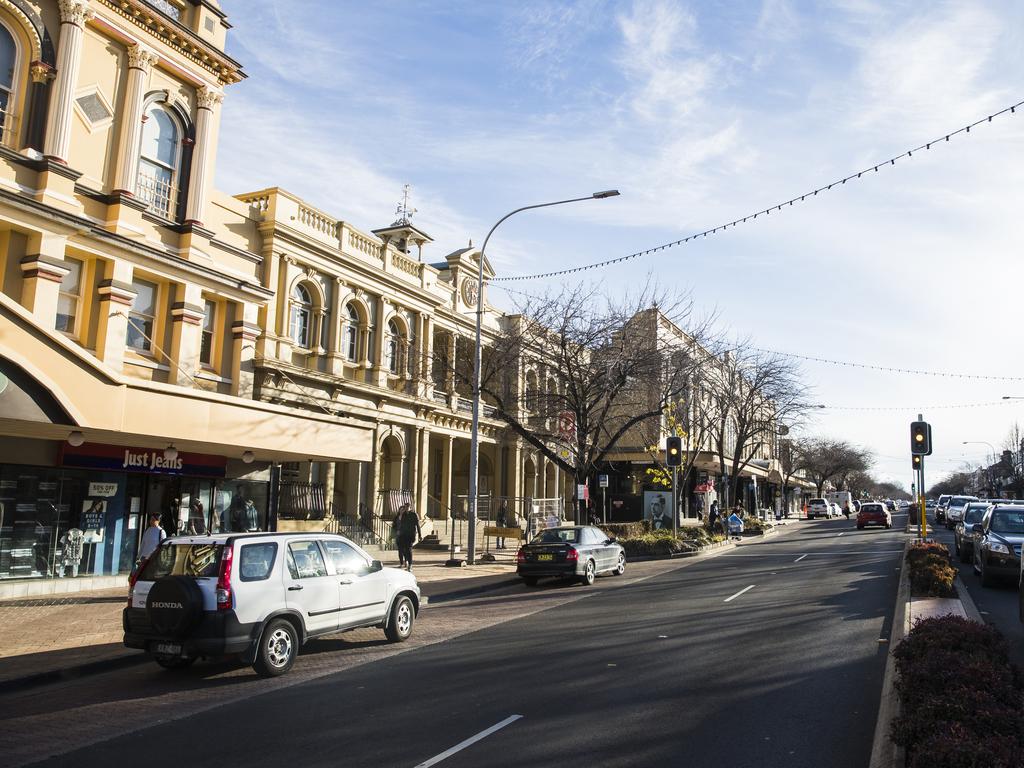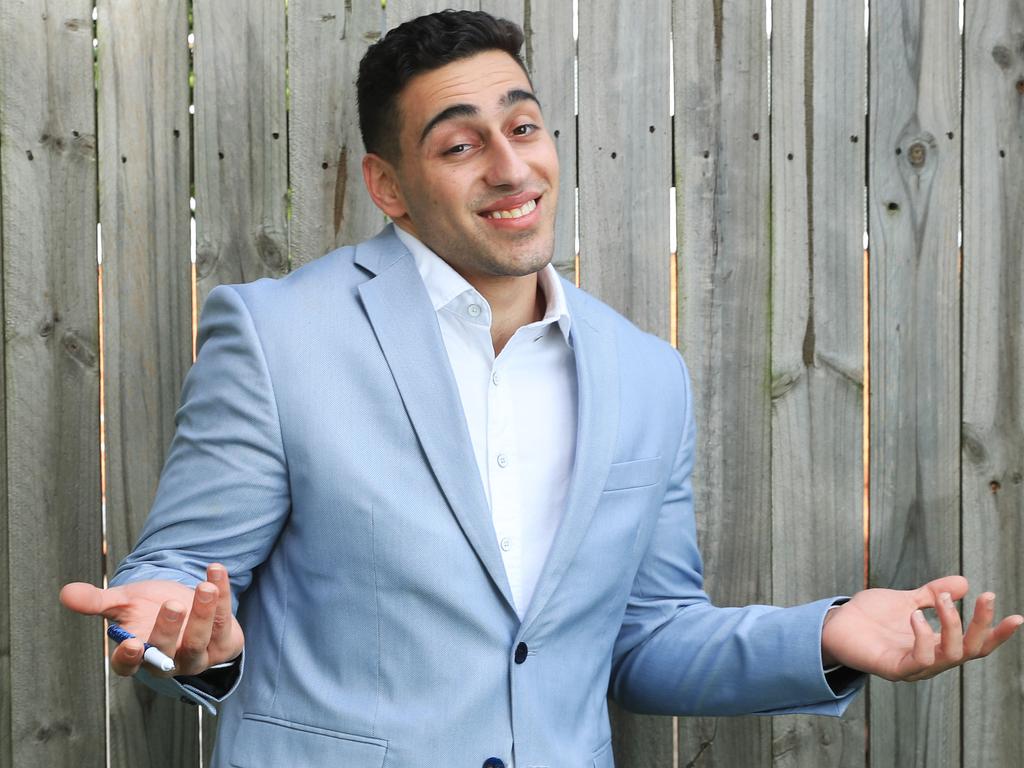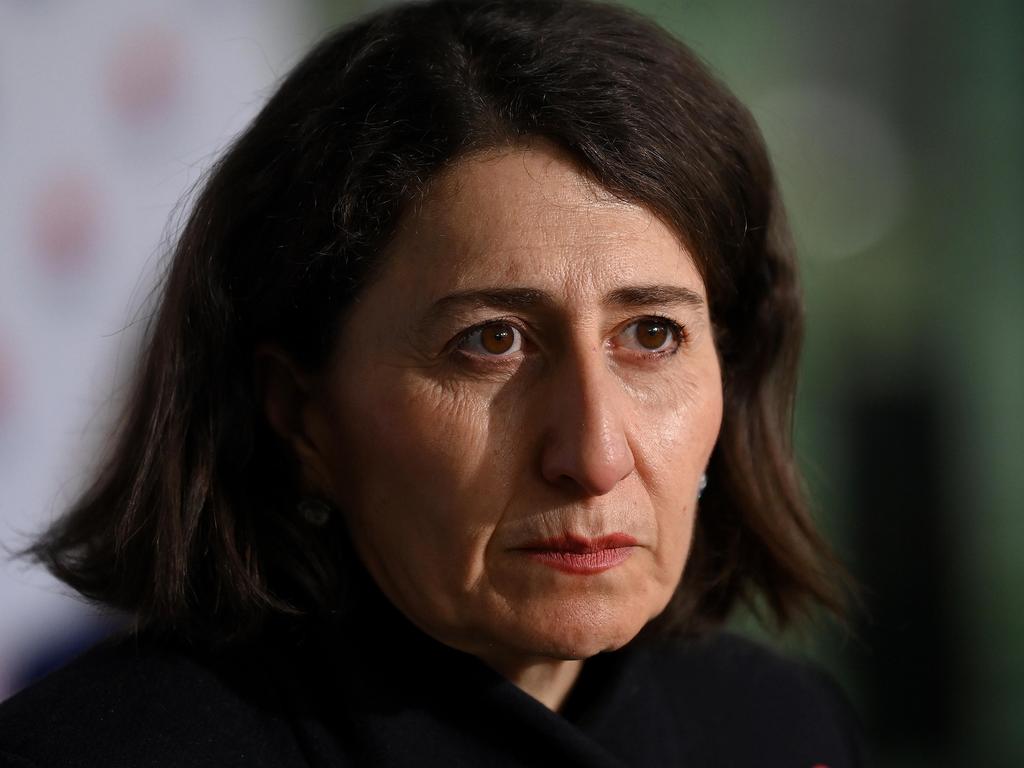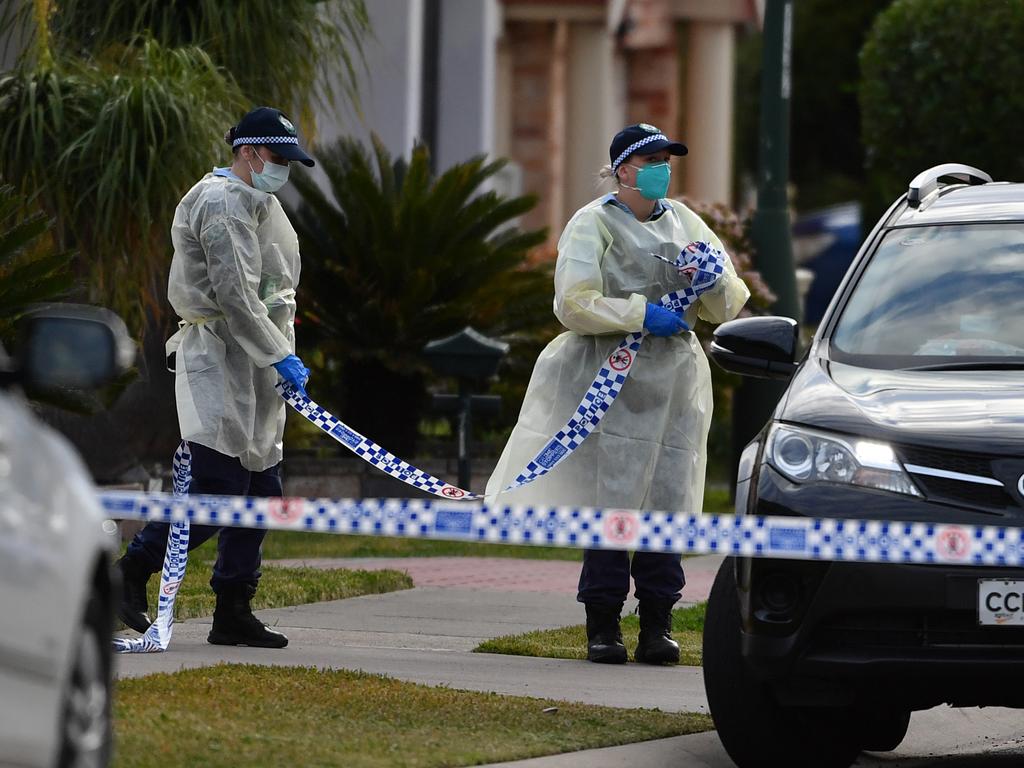Essential things of life? Depends on where you live

At issue have been the different approaches in NSW and Victoria towards retail. NSW Premier Gladys Berejiklian has tolerated the odd open shop. Victorian Premier Daniel Andrews eliminated them like rats.
Fran Kelly, oracle of political correctness at the ABC, demanded NSW adopt Victoria’s steely approach. She was particularly enraged by the odd open florist and homeware shop.
Now, Berejiklian has succumbed substantially, further restricting non-critical retail businesses and temporarily closing down construction. But while her health orders are hardly soft, they are still a little less Stalinist than Melbourne’s. Really, what we are fighting about is the difference between being locked down and locked up. Until now, NSW understood the difference.
None of this has much to do with genuine health regulation. This is about power and politics. In terms of power, the new Covid aristocracy of bureaucrats, woke journalists and health commentators yearns for yet more control over a dim population. As for politics, this all turns on the rehabilitation of Andrews. If his present tough essential services lockdown can triumph over past NSW slackness, perhaps we will forget all those deaths, pointless curfews and the North Face jacket.

Politically, the argument depends on two propositions. First, that it is possible to produce an iron-clad, foolproof essential services regime. Second, that Victoria has one. Believe either of these things and I will sell you the Harbour Bridge. Simply in terms of practicality, the Victorian essential services definitions run to 40 dense pages. The entire Australian Constitution has only 36 and is easier to digest.
Underlying this prolix frolic is the reality that any attempt to comprehensively define what is essential is complex, fundamentally ambiguous, disputable and hard to reduce to writing. The Victorian documentation is riddled with these problems.
There are at least three senses in which something can be essential. First, it could be indispensable to life. Second, you might not need it to live but without it life is miserable. Third, something may be essential not because you will die or psychologically collapse without it but because the activity itself is intrinsically valuable and will not survive temporary (especially repeated) suppression.
So which definition do those drafting geniuses at ABC radio propose, because they produce radically different results?
Take Kelly’s renegade florists. A daffodil is not essential to life. But the availability of flowers may well improve life, especially psychologically, especially in times of crisis. And assuming this, if you keep suppressing florists, they will disappear.
In Victoria, the only thing that matters is that flowers do not sustain life. Psychological sustenance or whether they will be available in the future is irrelevant. Florists are not on the authorised provider list, so bouquets are out. Sounds brutally simple. But to get there, you have to harmonise complicated definitions of authorised providers and authorised workers, and read pages of equally complex exceptions. As a lawyer, I struggled.
Even in their toughened form, Sydney’s health orders are a bit friendlier to read and in operation. Florists cannot open but, unlike in Victoria, garden centres and nurseries can, along with landscape supply stores and hardware shops. Then again, the Sydney orders also have to deal with declared plague pits, most notably Fairfield. There, people working outside their local government area have to be tested every three days to travel to work.
Both NSW and Victoria allow otherwise closed businesses to sell by click and collect, which will be fine for florists in Toorak and Vaucluse, with well-heeled, linked-in customers. But good luck to humble bloom peddlers in Sunshine or Bankstown.
Worse, click and collect certainly will be the next target for the Covid Taliban. Just how hard can they make it to provide contactless delivery?
But what is really boggling about these Covid regimes are the contradictions. Essential means different things in different contexts. In Victoria it is essential to shop for food, but that covers any food, including caviar and crayfish. Vital to life? You can go to pet shops, but that includes not just buying dog food but a new guinea pig. Survival?

Authorised workers include people in horse and greyhound racing, journalists (naturally) and those working on feature films. These, apparently, are social plasma. Final-year trainee teachers can do their practicums to qualify but there is nothing to allow the vast backlog of students in earlier years to complete their practicums. Apparently we will not need new teachers after next year.
Funerals and religious services are barely tolerated, permitted with only 10 people for funerals, and five to allow the broadcast of services, with much the same applying in NSW. After all, belief and dying are not major parts of life. Not like greyhound racing.
And what is meant by Victoria’s stipulation that someone in primary industry is an authorised provider, but only to feed and care for animals and maintain crops? What exactly is a farmer allowed to do? Can he harvest or shear?
The danger is that these much praised essential services regimes are clumsily constructed scaffolds of value judgments, hastily assembled by health bureaucrats, drafted by amateurs and changing so quickly it is almost impossible to know the law. The more we try to codify Covid, the more we live in a coercive mess.
Greg Craven is a constitutional lawyer.







The great thing with Covid as pursued by the ABC and other health terrorists is there is a new outrage every day. Take vaccines. Cue hysterics over everything from supply to side effects and rollout. Now the crisis is defining essential services. What is indispensable and what is Malcolm Turnbull?